Release 5.0.0-Renegade for Onesait Platform
Last Friday we launched the first version of Onesait Platform for this 2023, reaching version 5.0.0 which The Community™ has decided to call «Renegade», following our versioning policy.
As usual, if you are interested in finding out what we have been working on throughout this first Q of 2023, be sure to take a look at our Roadmap, also remembering that we can find more information about the capabilities of the Platform on the Portal of Developer.
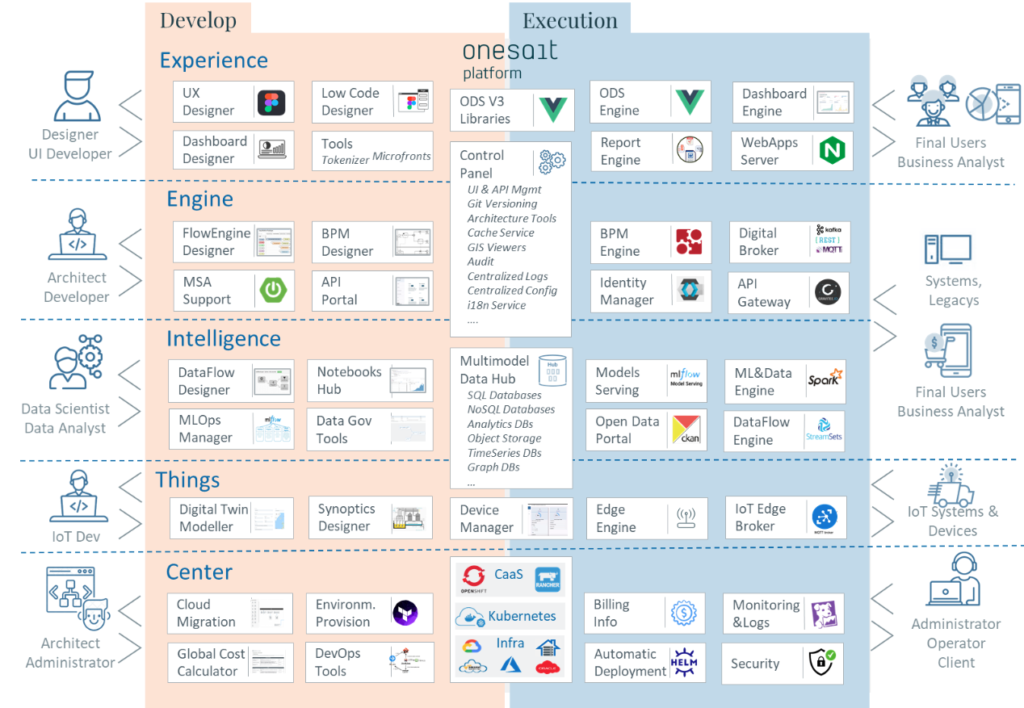
Having finished the presentations, let’s see what new features we include in this new version.
Engine
In this distribution, we applied agile and low-code strategies for the development and integration of business solutions, based on standards, compatible with different specific cloud vendors, and deployable on IaaS, SaaS or On Premise infrastructures:
- Scalability and stability of any infrastructure.
- Data-centric.
- Integrated end-to-end security.
Throughout this first period of the year, we have worked on the following points:
Generation of documentation on elements of the Platform
With this functionality, we intend to support the work of documenting a system built on the Platform. Through the Platform’s own Control Panel, we will be able to generate documentation on all the elements of the Platform in both web and PDF format.
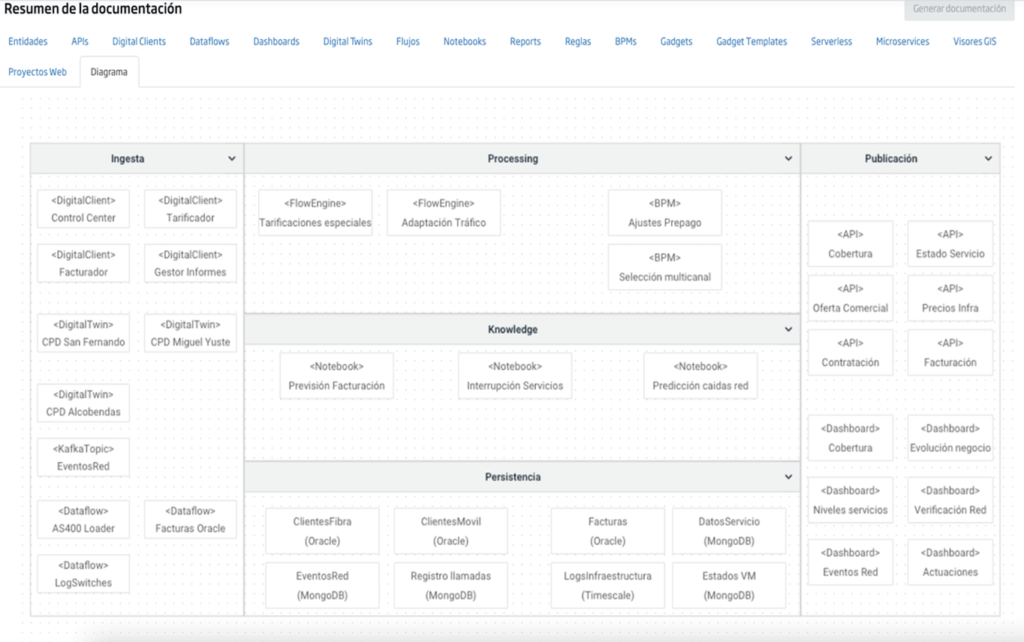
If you are interested, we will explain this functionality in more detail in the following article (in Spanish) on the Development Portal.
Native MQTT support
From this release, we start supporting MQTT natively; that is to say, we allow communication through MQTT topics with the security of the Platform, since until now the Platform Digital Broker only supported MQTT through our SSAP messaging protocol that masks the base protocol.

In the Development Portal, we have prepared this article with more information and an example of this new functionality.
GIS Map Project Management
If the last quarter we included a new project library and GIS viewers, in this same period we have created a manager that will allow you to manage, from the Platform itself, the configuration of map projects, maps, layers, and symbology styles of the layers.
Thanks to this manager, with just a few clicks, or even importing a previous configuration file that you may have, you will be able to easily use the configuration of the map project to consume it in our Front projects, all of that under the security of the Platform.
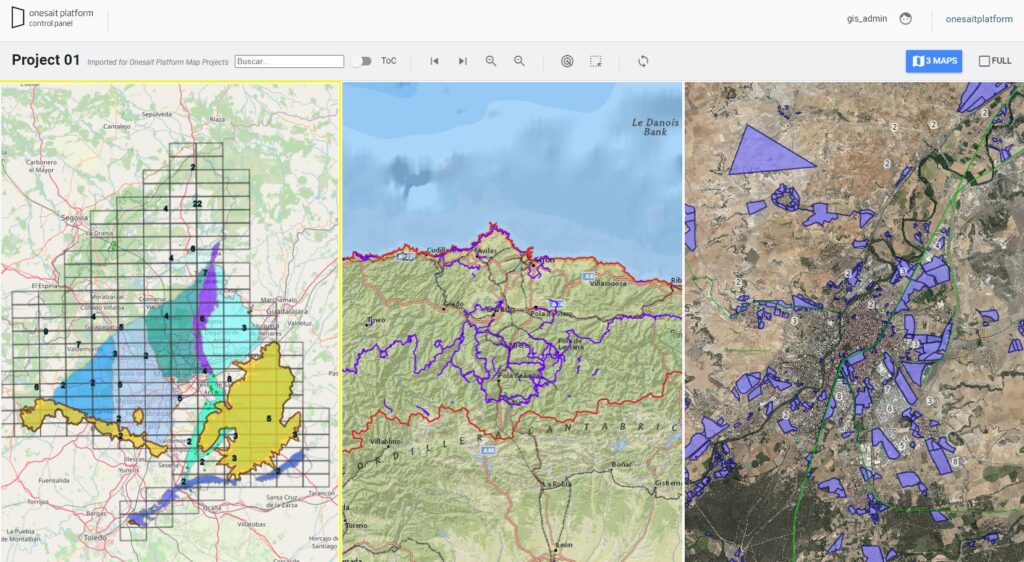
This manager includes:
- Visual configuration of the maps: including the tools that are displayed, the layers, the services and the different styles.
- A consuming REST API, including the import and export of these projects.
- A Platform web project that will display the map project for viewing.
We tell you in detail how this new manager works in this article that we have prepared.
Flow Engine Monitoring
To ease the monitoring of resource consumption by each domain (NodeRED instance) of Flow Engine, a series of elements of the Platform have been created that will allow us to analyze the logs of that module and view the resource consumption information and execution of processes in a simple way through a Dashboard.
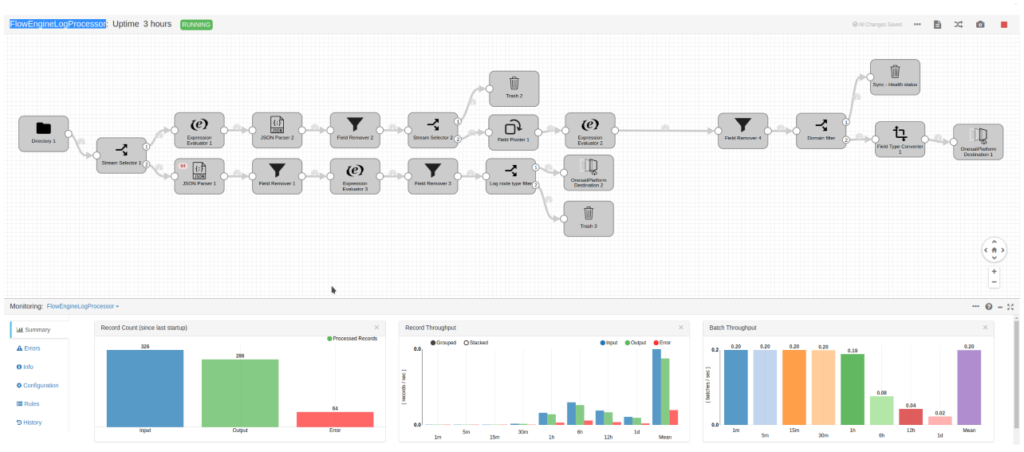
In this article we tell you its complete operation and how to deploy it in our environment.
Java 17 as the Platform’s default JVM
In this version, the Platform has been migrated and certified to use the latest LTS version of Java by default, 17, as JVM for all Platform modules.
You can find more information about it in this article.
Other improvements
In addition to carrying out corrections, other improvements have been incorporated, including:
- Deletion of data stored on the Platform: To comply with the GDPR, the Platform allowed a user to delete all data stored on the Platform. An option has been added to delete both the data and all the elements created by the user, and finally the user himself:
- Improvements in the management of DataFlows: in the three-dot context menu option, the following clone options have been added: commit changes and reset offset.

- Automation of the vertical creation process: so that the Platform administrator users themselves can create them in multitenant environments.
- Optimization of MyFiles listing in the FileRepository: to avoid long loading time when many files are handled.
- Entity filtering optimization: being able to select, or not, either audit and log entities.
INTELLIGENCE
We virtualize and simplify access to data between organizations, departments and systems, achieving a 360º vision of business entities, and facilitating their exploitation, through real-time rules, execution of complex algorithms or traditional analysis:
- Unique multi-repository data model.
- Collaborative environment for Data Scientists.
- Access, management and consumption of APIs.
We have focused our work this quarter on the following functionalities:
New version of the Notebooks Engine
In this version, we have updated the Notebooks engine to the Zeppelin version 0.10.1, which includes new features such as improved integration with Jupyter, native integration with Kubernetes and new ZeppelinAPIs to be able to remotely execute notebooks programmatically, and SessionAPI to be able to execute free code against interpreters with Platform authentication.

We talk in moredetail in this article on the Developer Portal.
New features in Open Data Portal
We have added new capabilities to our Open Data Portal, allowing you to view statistics on the data sets, download their catalog in RDF format, and add comments to the data sets.
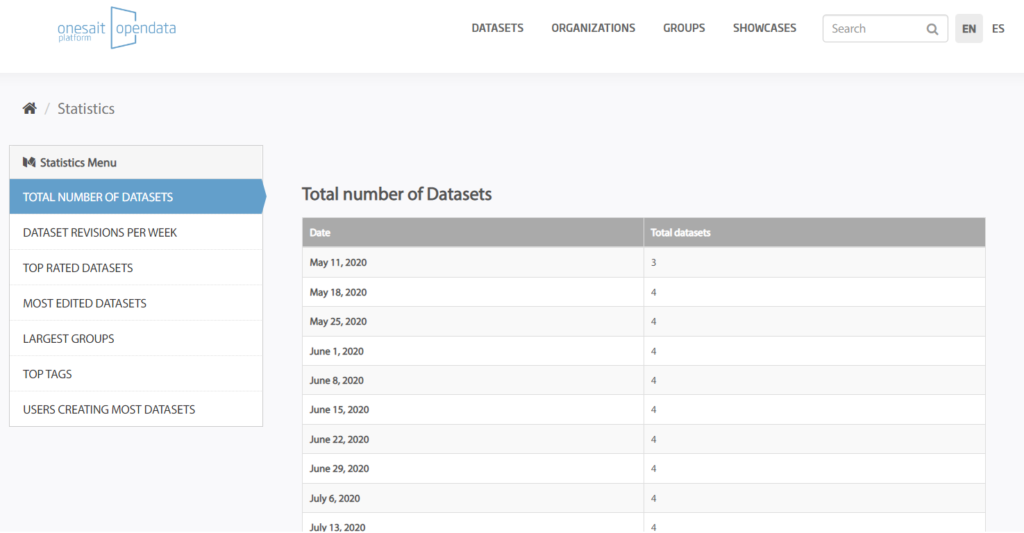
In the Development Portal, we have an article in which we explain these new features.
Entity Statistics
We have incorporated an initial version of the statistics functionality on the Platform Entities, in the style of the famous «describe» of the Pandas library.

If you are interested in this functionality, we have more information in this article on the Development Portal.
New UI for custom gadgets
To improve the user experience when creating custom gadgets, we have added a drop-down panel to the right of the Dashboards editing screen, which displays the gadget’s settings:

In this article of the Development Portal, you can find more information about it.
CENTER
Center manages the deployment and operation of your Solutions in your preferred cloud, and provides tools to facilitate the migration to the Cloud of your Legacies:
- Simplify migrations to the Cloud.
- Centralizes the DevSecOps ecosystem.
- Manages the deployment of reusable functional accelerators.
After the initial version of the Control Center, this quarter we have focused on these lines of work:
Generating Helm Charts from a Kubernetes environment
This new functionality of the Center allows precisely to generate a Chart Helm with the externalized configuration, from an installation in an environment, so that from an environment we can, in a few simple steps, generate the installer that allows us to reproduce our product in another environment.
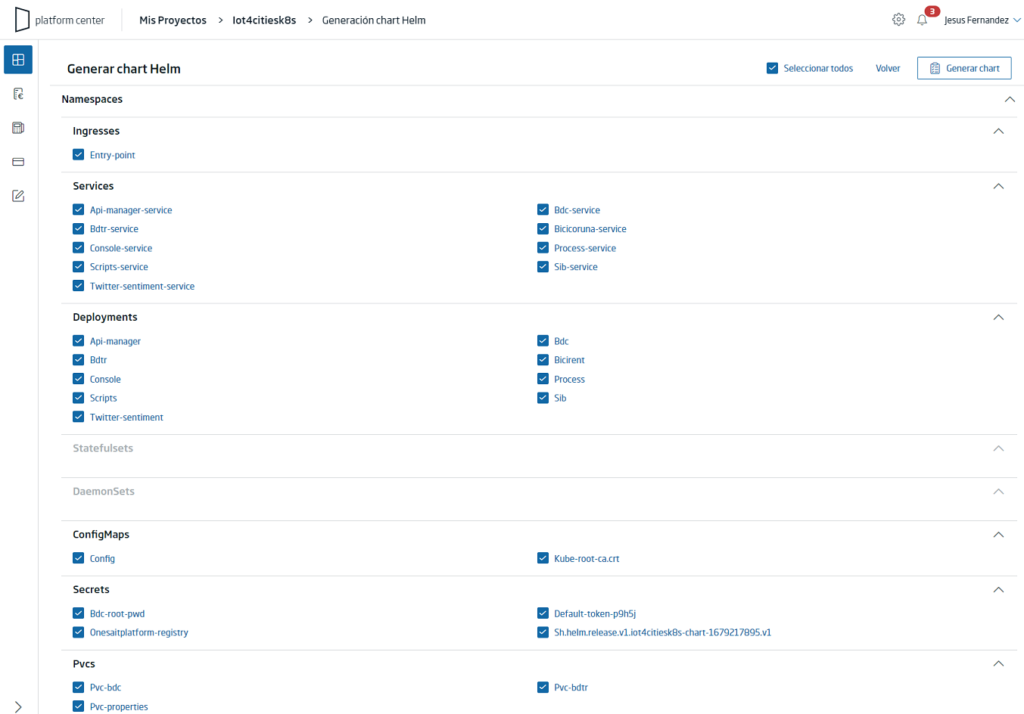
In this article of the Development Portal, we explain its functionality.
DEVOPS & SUPPORT
Our DevOps reference framework defines the incorporation of the most recent and proven practices to ensure the quality and agility of the platform development process.
In this quarter we have worked on:
Vulnerability Management Pilot
Like any software, Onesait Platform has multiple dependencies on third-party software, from libraries used at development time, to operating systems used in containers when deploying, and it is vital to analyze and update these dependencies as security threats are detected.
We are working on the Onesait Platform secure development model applied to the resolution of threats detected in third-party software used by the Platform.
In this quarter, a manual vulnerability management pilot was carried out, to automate the entire process in the second quarter.

We have created an article in the Development Portal with all the information about it.
DEMONSTRATORS
Here we will tell you about the latest demonstrators that we have developed on the Platform, and that have served to teach clients some of the Platform’s capabilities.
Bank File Flow Demonstrator
A proof of concept has been developed to generate bank records for different entities from the data obtained by invoking a REST service. The DataFlow, Flow Engine, Virtual Entities, APIs and Dashboards of the Platform have been used in the demonstrator.

If you are interested in learning more about this demonstrator, do not miss this article from the Development Portal.
COMMUNITY
Onesait is committed to Open Source technologies to create a community and ensure independence. Throughout this first quarter of 2023:
- We’ve been doing some cleanup in CloudLab, our free and experimentation environment. After removing test users and so on, we now have over 1,180 active users using our public Platform.
- We have 178 subscribers to our YouTube channel, adding +880 total hours of viewing and exceeding 107,000 impressions of our videos and live shows.
- Our Community version of the Platform on GitHub reaches almost 1,500 clones, with a total of 266 developers closely following the project.
- About our Blog, it has a total of +380,000 readings of our articles, increasing this quarter by +63,000 readings, and with a total of 472 published entries.
- We exceed +350,000 total impressions on Twitter, with almost 180,000 visits to our profile, +1,000 retweets and +1,400 likes from our tweets.
- If you want to be up to date with our special events, be sure to sign up to our Meetup community, where there are already +700 subscribers.
- Release 4.3.0-CE has been released: In the coming weeks, the 4.3.0 Community version of the Platform will be available in our Github repository.

- Updated the CloudLab instance with version 4.3.0-Quest.
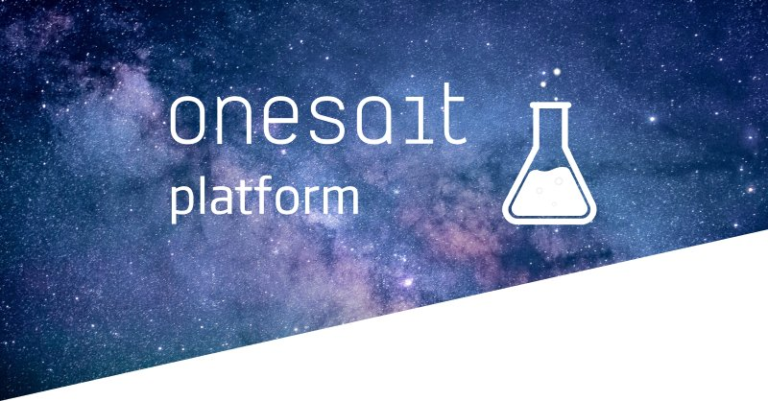

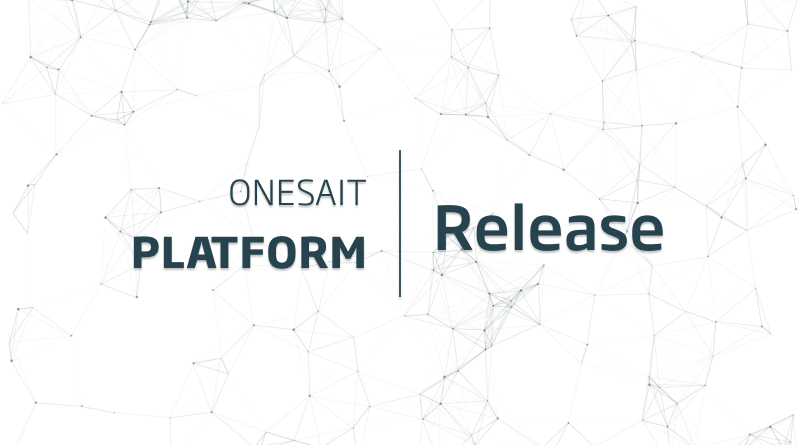
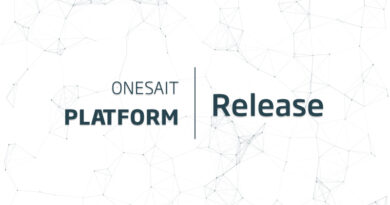

Pingback: Documentation of Onesait Platform elements – Onesait Platform Community
Pingback: New functionalities in the Open Data Portal – Onesait Platform Community
Pingback: Flow Engine Monitoring – Onesait Platform Community
Pingback: New user interface for custom gadgets – Onesait Platform Community
Pingback: Vulnerability Management Pilot – Onesait Platform Community